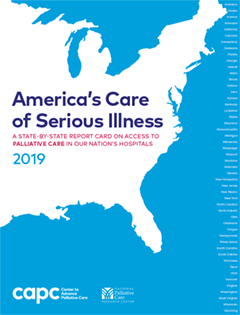Glossary
Alternative payment model (APM)
The method of paying for services in which providers choose to receive rewards and penalties for quality and cost outcomes. It differs from the standard fee-for-service schedules for each defined encounter or procedure in one of two ways: a) the provider’s ultimate earnings are enhanced or reduced by their quality and/or cost outcomes; or b) the provider’s ultimate earnings are dependent upon the difference between actual costs and target costs.
Accountable Care Organization (ACO)
An Accountable Care Organization is a group of providers organized to take responsibility for the overall quality of care and the total cost of all the health care services needed by a group of patients over a period of time. An ACO is not a payment model; it is an organizational structure designed to accept accountability for care delivery quality and costs.
Hospital Categories
For-profit: Run by individuals, partnerships, or corporations
Nonprofit: Run by a charitable organization (including church-operated ones)
Public: Nonprofit institutions run by a state, county, city, district, or other government authority
Sole community provider (SCP): Hospitals that receive SCP designation by Medicare because they are located more than thirty-five miles from other hospitals, or they are the sole providers of health care services for a region due to limitations in local topography or prolonged severe weather conditions.
Medicare Advantage (MA)
Also known as, Medicare Part C, a private health insurance plan that enrolls Medicare beneficiaries and covers their health professional and facility costs in exchange for a premium paid by the federal government. Medicare beneficiaries who enroll in a Medicare Advantage plan agree to have their health care payments determined by this private plan, and so waive their rights to participate in traditional Medicare.
Palliative care, palliative medicine
Palliative care is specialized medical care for people living with a serious illness. This type of care is focused on providing relief from the symptoms and stress of the illness. The goal is to improve quality of life for both the patient and the family.
Palliative care is provided by a specially-trained team of doctors, nurses, and other specialists who work together with a patient’s other doctors to provide an extra layer of support. Palliative care is based on the needs of the patient, not on the patient’s prognosis. It is appropriate at any age and at any stage in a serious illness, and it can be provided along with curative treatment.
Prevalence
In the Report Card, prevalence is the proportion of hospitals that report a palliative care program during the reporting period. Presented as a percentage, prevalence is calculated by taking the number of hospitals with palliative care and dividing that by the total number of hospitals.
For additional terminology related to palliative care payment, please visit the CAPC Payment Glossary of Terms at capc.org.
Contact Us
Inquiries about A State-by-State Report Card on Access to Palliative Care in Our Nation’s Hospitals should be directed to:
Inquiries
Rachael Heitner, MPH
Associate Director, Research and Insights
Center to Advance Palliative Care
[email protected]
